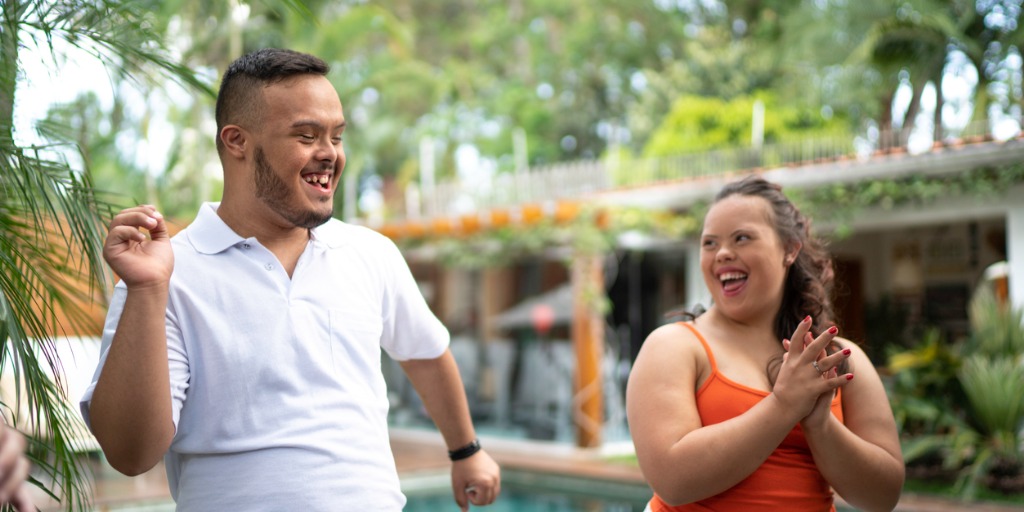SafeinHome attended the TN-NADD virtual conference last week whose mission is to advance mental wellness for persons with developmental disabilities through the promotion of excellence in mental health care. One of the most impactful presentations was by Dr. Rick Rader who presented findings from a study conducted during COVID-19 of people with intellectual and developmental disabilities receiving waiver services in a residential setting. He warned that what he was about to present may be controversial.
He shared that people with IDD have very regulated and scheduled lives. From the moment they wake up until bedtime and during the night if they decide to get out of bed, they receive constant instruction and correction. This is exhausting. I do not identify as someone who has an intellectual disability yet can relate to his insights. Dr. Rader expressed that people with IDD may be challenged to interact emotionally and behaviorally as much as their highly scheduled lives necessitate. He went on to report that there are typically more unwanted behaviors during heavily prompting times like in the morning to get ready for the day and required medication times.
Like most Americans, during Covid-19, people with IDD had fewer people in their daily lives. The research outcomes presented by Dr. Rader showed positive behavioral health outcomes. With less staff and more private time, behavioral health improved. There were less significant behaviors and a decrease in psychiatric medications. He commented that people have done better not being forced to perform jobs and activities they do not want to do. He went on to say that people living in community living are not necessarily experiencing integration and choice and that we need to put the person back into person-centered planning.
Free time is time spent away from business, work, job hunting, domestic chores, and education, as well as necessary activities such as eating and sleeping. Leisure as an experience usually emphasizes dimensions of perceived freedom and choice. It is done for “its own sake”, for the quality of experience and involvement. Medicaid waivers providing services for people with IDD include regulations to ensure people have freedom of choice and can experience self-determination (able to make decisions without asking for permission first).
People need to have leisure time when they are not being coached to perform activities and jobs How do we (stakeholders/the system) provide the time and space for people who have traditionally lived very scheduled lives to experience true free time where they can make decisions without asking for permission and engage in activities for their own sake and not predetermined by a service or a person of authority? Don’t all people (you, me – all people) want to have better behavioral health outcomes – less anxiety, less need for medications, etc.?
What would it look like if a person could be supported in their leisure, have privacy and be safe?
Look into using Remote Supports: remote staff available at the touch of a button who have behavioral health training, always supportive and available 24/7. Because the support is remote, the person always has the choice to engage, which gives them power and choice while the technology provides privacy and reliability. SafeinHome clients report decreased anxiety and appreciate that they can have alone time and support when they want it.

